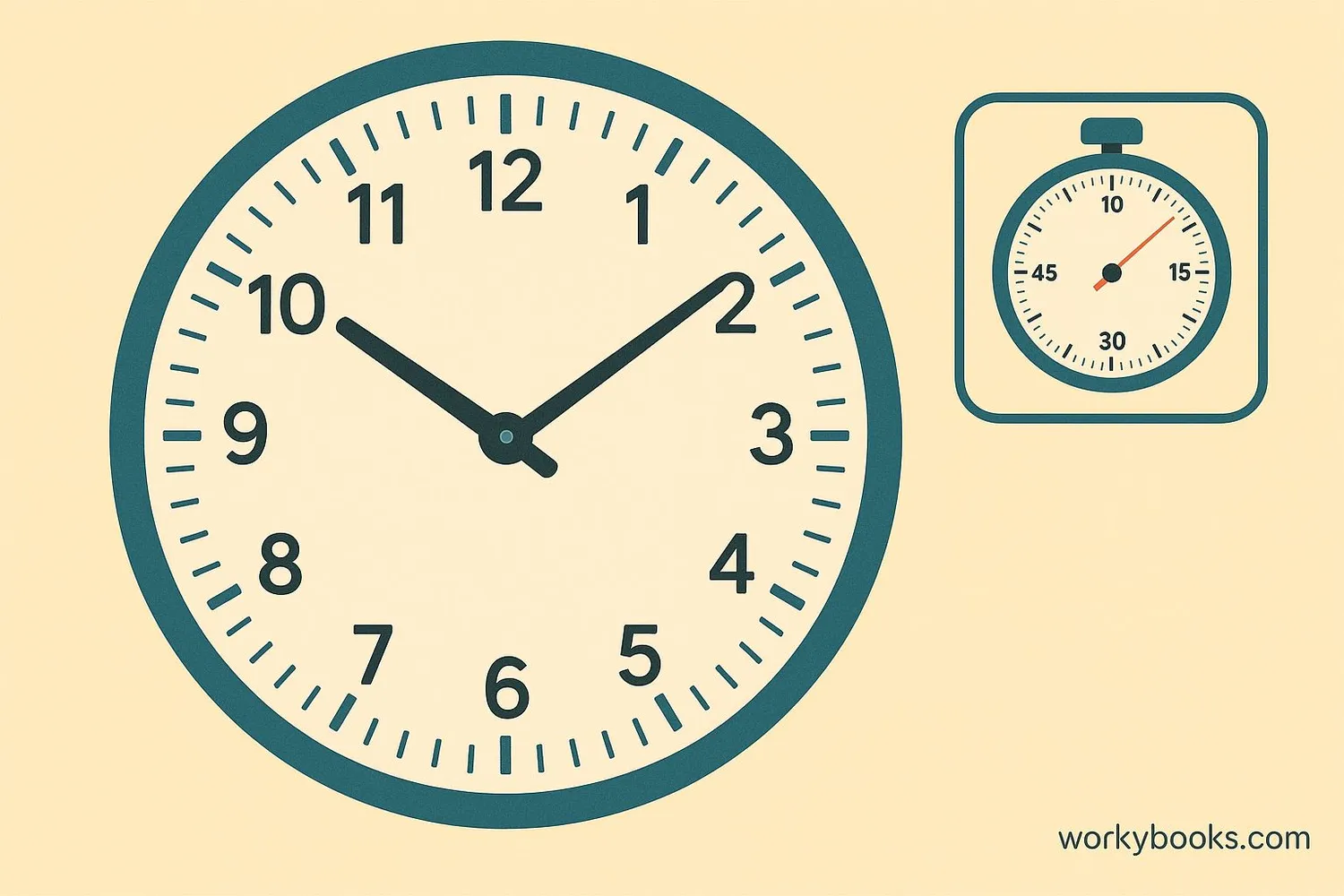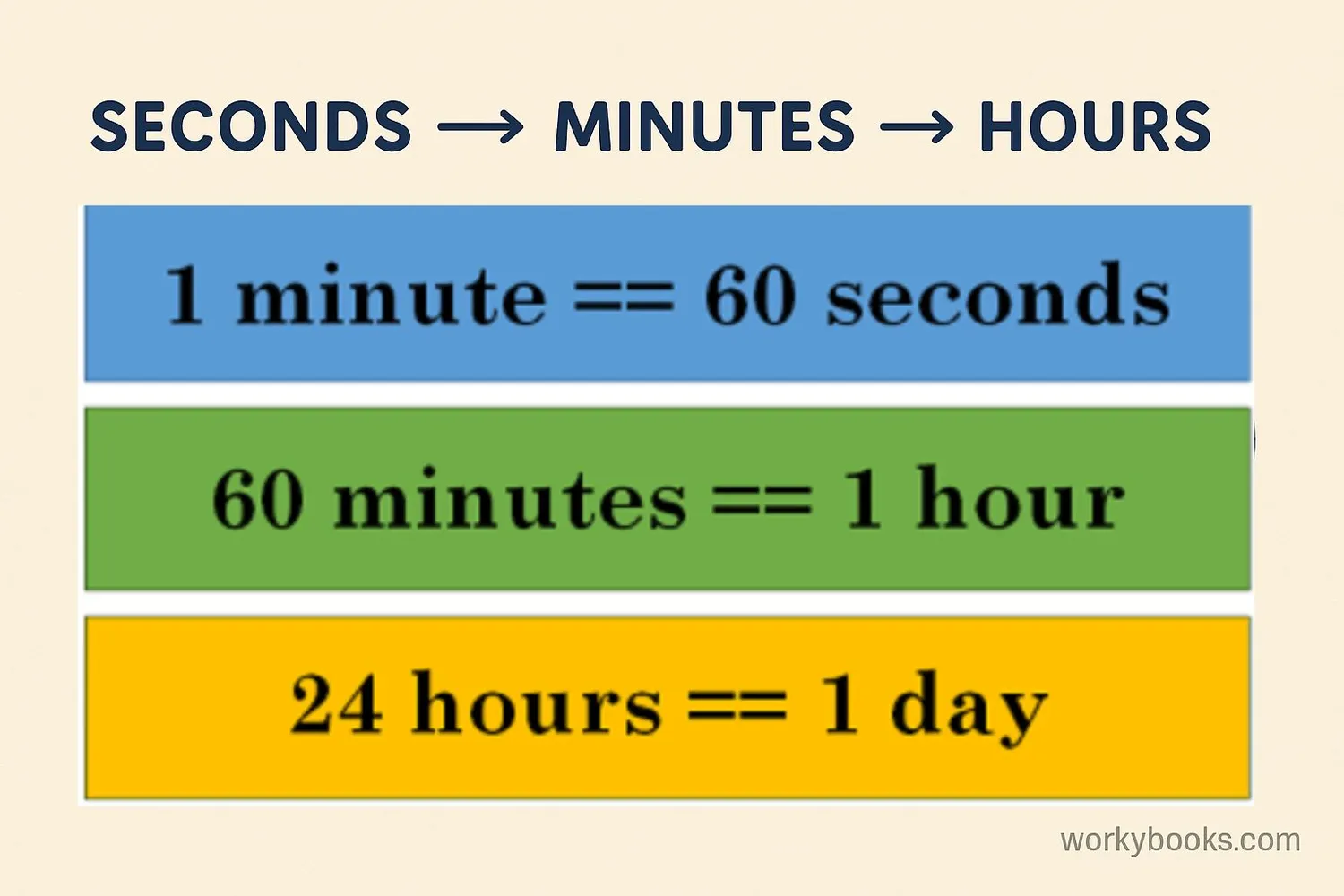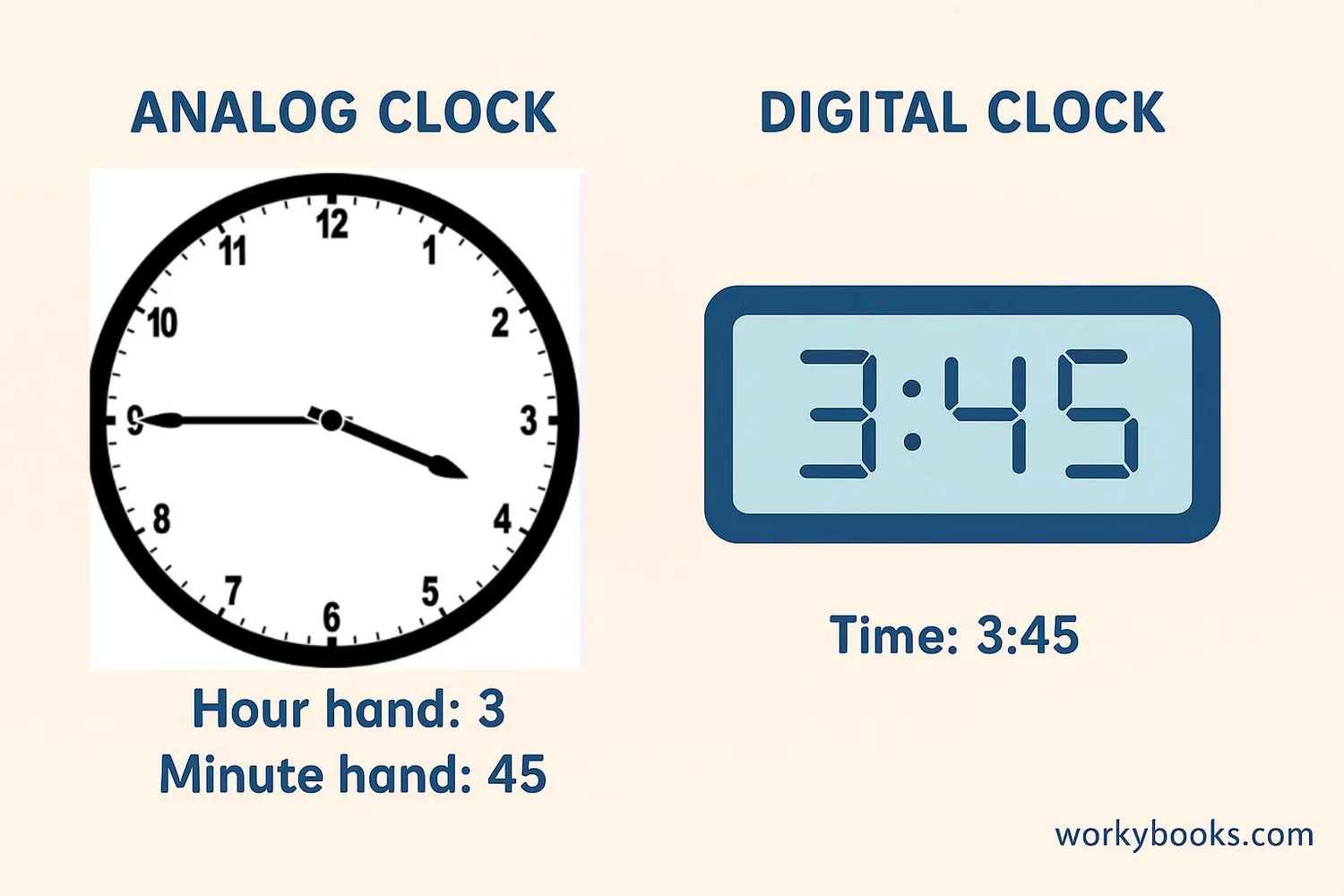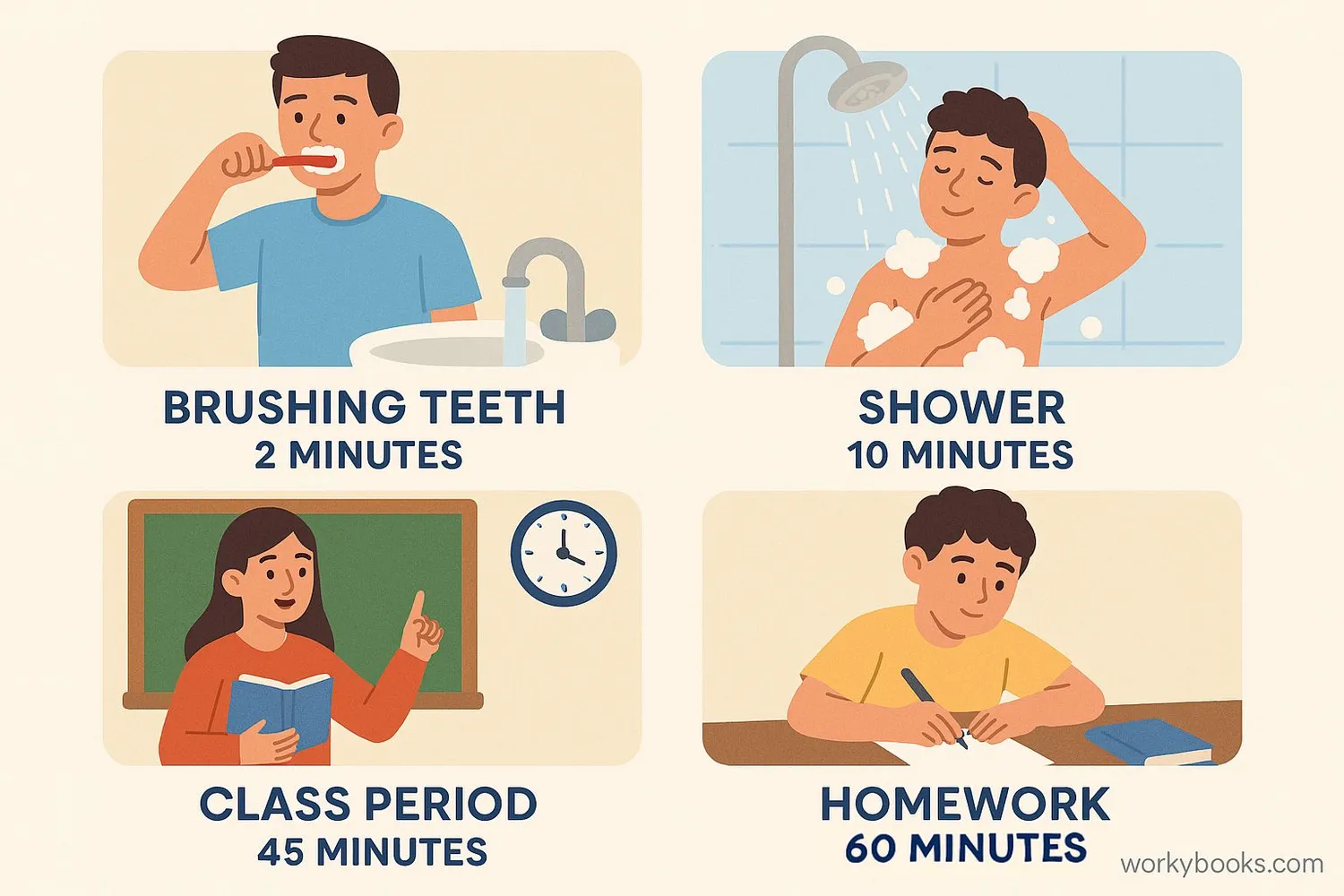Minute - Definition, Examples, Quiz, FAQ, Trivia
Learn about time measurement with easy explanations, examples, and practice activities
What is a Minute?

A minute is a unit of time that helps us measure how long something takes. There are 60 seconds in one minute. The word "minute" comes from the Latin word "minuta" which means "small."
We use minutes to measure short periods of time. For example, it might take you 5 minutes to brush your teeth, or 15 minutes to walk to school.
On a clock, the long hand shows the minutes. When the long hand moves from one number to the next, 5 minutes have passed. A full circle of the minute hand takes 60 minutes, which is one hour.
Key Concept
1 minute = 60 seconds. This relationship is the foundation for all time conversions.
Understanding Time Units

Time is measured using different units. The main units we use are seconds, minutes, and hours. Understanding how they relate to each other helps us tell time and manage our daily activities.
Time Conversion
To convert between time units, multiply or divide by 60.
Example: How many seconds are in 3 minutes?
Step 1: Remember that 1 minute = 60 seconds
Step 2: Multiply 3 × 60
Step 3: Calculate the result → 180 seconds
Now try this: How many minutes are in 2 hours?
Step 1: Remember that 1 hour = 60 minutes
Step 2: Multiply 2 × 60
Step 3: Calculate the result → 120 minutes
Remember
When converting smaller units to larger units (like seconds to minutes), we divide. When converting larger to smaller, we multiply.
Reading Time on a Clock

Reading time is an important skill. There are two main types of clocks: analog clocks (with hands) and digital clocks (with numbers).
On an analog clock:
- The short hand shows the hour
- The long hand shows the minutes
- Each small mark represents 1 minute
- Each number represents 5 minutes
On a digital clock:
- The numbers before the colon (:) show the hour
- The numbers after the colon show the minutes
- Sometimes you'll see AM (morning) or PM (afternoon/evening)
Example: If the analog clock shows the short hand at 3 and the long hand at 9, the time is 3:45.
Example: If a digital clock shows 4:30, it means 4 hours and 30 minutes.
Common Time Conversions
| Minutes | Seconds |
|---|---|
| 1 minute | 60 seconds |
| 5 minutes | 300 seconds |
| 10 minutes | 600 seconds |
| 15 minutes | 900 seconds |
| 30 minutes | 1,800 seconds |
| 60 minutes | 3,600 seconds |
Practice Tip
Practice reading both analog and digital clocks. Ask your family to quiz you on the time throughout the day!
Real-World Examples

Let's look at how minutes are used in everyday life:
Example 1: Brushing your teeth
Dentists recommend brushing for 2 minutes. That's 120 seconds!
Example 2: A school class period
Many classes are 45 minutes long. How many seconds is that?
Solution: 45 × 60 = 2,700 seconds
Example 3: Microwave cooking
Heating leftovers might take 3 minutes. That's 180 seconds.
Example 4: Sports timing
A soccer game is divided into two 45-minute halves.
Example 5: Music
Many popular songs are between 3-4 minutes long.
Think about your daily routine. How many minutes does it take you to get dressed? Eat breakfast? Walk to school?
Time Tip
Use a timer to help you understand how long different activities take. This will improve your time management skills!
Time Measurement Quiz
Test your time knowledge with this 5-question quiz. Choose the correct answer for each question.
Frequently Asked Questions
Here are answers to common questions about minutes and time measurement:
Time Measurement Trivia
Discover interesting facts about time measurement:
Ancient Timekeeping
The ancient Egyptians were among the first to divide the day into smaller parts. They used sundials during the day and water clocks at night. Their system had 24 hours in a day, which we still use today.
Atomic Clocks
The most accurate timekeeping devices are atomic clocks, which use the vibrations of atoms to measure time. They're so precise that they would only lose about 1 second every 100 million years!
Time in Space
Astronauts on the International Space Station experience 16 sunrises and sunsets every 24 hours! They use Coordinated Universal Time (UTC) to maintain a consistent schedule despite these rapid changes.
Shortest Time Measured
Scientists have measured the shortest time interval ever recorded: 247 zeptoseconds. A zeptosecond is one trillionth of a billionth of a second (that's 0.000000000000000000001 seconds)!





